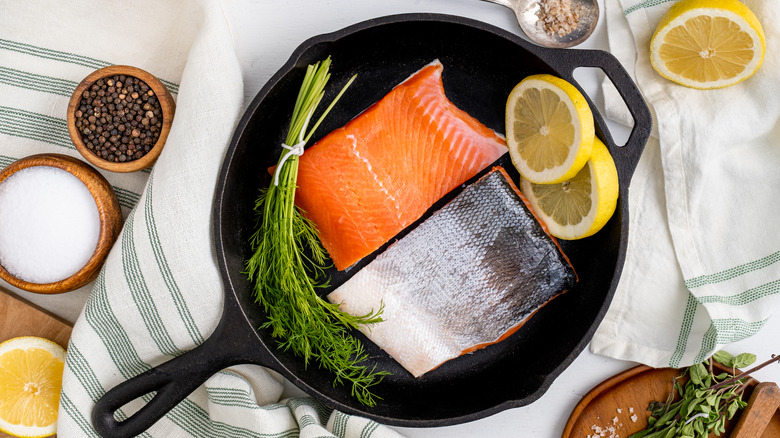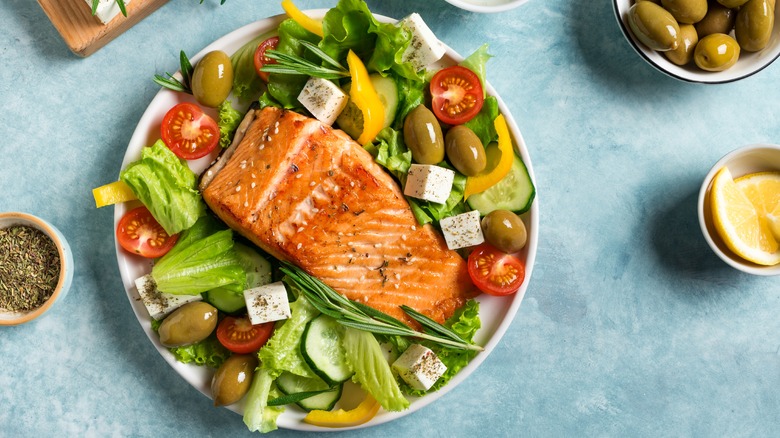The Salmon Variety That Fish Skeptics Should Give A Try
There are plenty of good reasons to eat fish generally, and salmon specifically: It's healthy, for one, packed with beneficial fatty acids and other nutritious compounds. If you know what to look for, it's sustainable — fish has a much smaller environmental footprint than, say, beef. It's often quite affordable, especially if you're buying canned or tinned fish (which you should then be arranging onto a beautiful seafood charcuterie board). In many respects, fish is the perfect protein. In other respects, it's ... well, it's fish, which may not be for everyone. Certain varieties, like mackerel, have a flavor that can only be described as fishy; you can imagine an otherwise curious eater stepping foot into a seafood market, getting a big whiff of the place, and turning right back around.
Folks who aren't wild about a strong fish flavor, though, shouldn't skip the fish market — they should ask for Coho salmon, which offers all of fish's virtues but is famously mild-tasting and easy to cook with. That makes it ideal for the fish-averse, or for any cook who's looking to make a seafood dish whose flavor isn't overpowered by the scent of the ocean. (Outside of the salmon family, tilapia and swordfish are a couple other, distinctly nonfishy fishes.) One of seven species of salmon native to the Pacific, Coho — also know as silver salmon — is also a sustainable choice. Here's a little more about it, and how it relates to some other members of the salmon family.
What is Coho salmon?
Without meeting the entire family, here are a couple types of salmon you might encounter at the store, starting with the king of salmon: That'd be, er, king salmon (aka Chinook salmon), a wild-harvested Pacific species that's big, fatty, and richly flavored — with a price tag to match. You might also come across sockeye, whose relevance to today's topic revolves around the fact that it's one of the more fishy-tasting salmons you can buy. If that's your concern, this is the one to stay away from.
Another Pacific variety, Coho is milder across the board. It's not as fatty as king salmon, it's neither the cheapest nor the most expensive salmon out there, and it's not as intensely flavored as either king or sockeye. That means that, in addition to being approachable for folks who aren't wild about a strong fish flavor, it's very versatile in the kitchen. Plenty of folks love grilled Coho salmon, and because this is a smaller fish, it's great to grill (or otherwise prepare) whole. Because of its relative leanness, it takes well to rich sauces that themselves may be a little fatty, like cream or butter sauces.
That same leanness means it can be a little quicker to dry out, though, so it's especially good for more delicate preparations like poaching or baking—better yet, en papillote. All the benefits of a great piece of fish, with just one element missing. You won't even notice it's gone.

